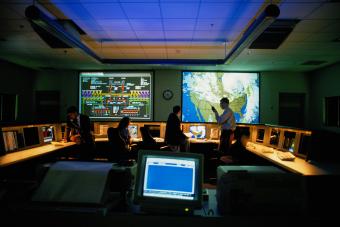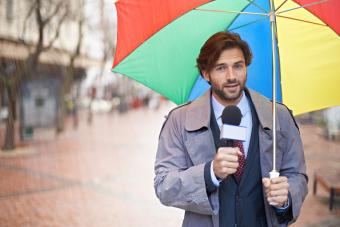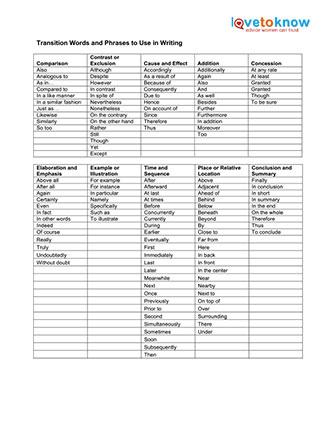
For a decade, I worked as a television meteorologist and had the pleasure of telling people what to expect when they walked out the door. While this seems like a glamorous role, there are a lot of misconceptions about this job.
It takes a lot of time and energy to get a degree in meteorology, so the term "weather person" can feel almost like an insult. We prefer being called a "meteorologist" — and we wish people knew the degree is not easy to get! It requires things like advanced calculus, physics, thermodynamics, and forecasting classes that are extremely challenging.
If you have ever wondered what meteorologists do or what a meteorologist studies, I have all the details!
There's a Difference Between Local Weather Forecasts and Weather Apps

Before you critique a meteorologist's forecast, you might want to ask yourself if you were watching the local news or checking your station's website, or using a free weather app? There's a big difference between how meteorologists predict the weather versus how a weather app does!
Weather Apps Give a Generic Forecast With No Verification
Most apps pull data from one weather forecast model that outputs a generic forecast. In contrast, a meteorologist takes the time to study multiple weather forecast models, as well as the climate data for their specific region and for that time of year, in order to formulate a customized forecast.
We also spend our time monitoring the weather in your exact region every day. We make tweaks and look at our errors so that we can better forecast the next day. Weather apps don't go back to check if everything the computer model was forecasting is lining up with what is going on outside. They just output data.
Small shifts in weather occur all the time, and these changes can be the difference between whether or not you get rain or if the high temperature reaches 95 or 100 degrees. If you want to critique our forecast, that's absolutely fine — just be sure that you're actually evaluating our forecast first!
Just Like a March Madness Bracket, Forecasts Aren't Always Totally Predictable

No one is perfect and no weather model is either. Small shifts in the atmosphere can change an entire forecast in just a few hours.
We know you get frustrated when our weather predictions are wrong, but comparing it to your basketball predictions last spring might help. Even an expert sportsman can't predict a hook shot in the last few seconds of the game. Things shift and that's just part of life.
It can literally rain on your neighbor's doorstep and not yours. I have seen this happen first hand at my house and my husband was not amused. Just because your lawn isn't wet doesn't mean that the forecast didn't verify. It just means that you weren't the lucky one today.
We Are Not Reading a Script

Meteorologists do not read off the teleprompter. We are having a conversation with the camera, aka you! Everything is ad-libbed because the weather is always changing. What this means is that just like in regular conversations that you have with family and friends, we may slip up a time or two.
However, unlike in a chat with a friend, we're on a time clock and have someone literally counting down the time we have left to share the forecast in our ear. When we get rushed trying to squeeze in a lot of information in a very short period of time, we sometimes get tongue tied. We appreciate if you give us some grace in these moments as well!
A 60% Chance of Rain Isn't What Your Think

Contrary to popular belief, a 60% chance of rain means that 60% of the REGION will see rain, not that your property has a 60% chance of seeing it. This isn't a betting game. It is a promise that out of the say 20 counties that we cover in our forecast region, we believe that 12 counties will get to see that rain.
Again, that doesn't mean that every square inch of each county will get rained on, but at least a portion of the area will.
We Do Our Own Hair and Makeup

Most mets do not have a full hair and makeup team like you see in the movies. We have to do that task all by ourselves. Bad hair days happen! Also, under all those lights, normal makeup looks washed out, so if you see us at the store and wonder about why our makeup is so heavy, it's because we are compensating for the excessive wattage shining on our faces.
Most Local TV Meteorologists Are Not Paid Well

Another big misconception — most TV meteorologists are not millionaires. Ironically, if you Google my TV name, it says that I am in this million dollar club. Too bad my bank account doesn't agree.
To give a bit of clarity, my first television job paid less than $25,000 a year. It didn't go up by much in the following eight years after that either. This is the reality of working in local television, especially in smaller markets.
Main talent normally gets a small stipend for clothes, but the rest of the crew has to figure out a way to look like a million bucks on an extreme budget. This means we will repeat outfits and not all of them will look perfect.
Please Don't Say Things to Us That You Wouldn't Tell Your Mom, Wife, Sister, or Friend

Many people don't realize that some of the meteorologists who grace their television screens take jobs far away from family and friends to give you the weather forecasts every day. Our accents may not match those in your region, our style may not meld with yours, and we may not look like a Barbie doll.
A meteorologist's job, and any newscaster's job, is to provide you with pertinent information and to look professional while doing it. We may not look like supermodels every day, but we do our jobs the best we can!
We're real people with real feelings who care about their communities. If you wouldn't say the comment to a loved one or friend, try to keep it to yourself. I say this as someone who has been hurt and felt uncomfortable by the superficial comments of others.
Many female meteorologists are bombarded with messages daily, including romantic interests. While some of the sentiments are sweet, others are beyond inappropriate. Either way, we would prefer that you not reach out in this way. Our professional pages are for viewers to share weather information.
We Are Responsible for a Region, Not Just a Specific City

When a meteorologist cuts into the last three minutes of a sporting event or show to talk about severe weather four counties away from where you are located, we aren't trying to ruin it for anyone, we're trying to keep everyone in the viewing area safe.
Most news stations cover large regions, not single cities. In fact, Albuquerque, New Mexico and Salt Lake City, Utah are the ONLY television markets for their entire states! If a tornado is touching down and people's lives are at risk, we are going to break into programming. It's our job and we try to prioritize safety above all else.
We Work Way More Than Just Those Five Minutes You See Us on Screen

What do meteorologists do? Other than literally telling you the forecast, we start our day by analyzing weather data, creating a custom forecast, designing the graphics that you see behind us, and typing out a written version of what we plan to tell you. This is not for us to read, but rather for closed captioning — so the hearing impaired can get the information that isn't being displayed on the screen.
Most meteorologists are also responsible for reporting on weather stories, environmental topics in their region, and even conducting live shots where we talk about local events that will be happening outdoors. Additionally, we spend time away from the green screen talking at schools and local events to help educate young kids on the science behind weather.
Many meteorologists, like myself, also spend our free time serving as ambassadors for charities like Make-A-Wish and Autism Involves Me.
The Accuracy of a Forecast Diminishes With Each Day

You can easily go online or on your mobile app and find yourself a 14-day forecast, but there's a reason why meteorologists stick to seven days or fewer: after that, nothing is accurate.
That's like saying you know how the Chiefs are going to play in two weeks. It could go just as you predict, or Mahomes could get injured during the game on day seven, making the game on day 14 a toss up.
This is why we remind you to follow us for updates when big weather events are in our forecast. Meteorologists work in eight to 12-hour shifts, and each meteorologist updates the forecast as new data comes out. The closer you are to the day in question, the more accurate the forecast will be.
Sign up for our newsletter featuring all the latest stories and products we love.
We Say Silly Phrases and Use Odd-Sounding Terms to Keep You Safe

When thunder roars, go indoors! Turn around, don't drown! We don't say these phrases lightly. We say them to try to save lives — sometimes goofy expressions can stick in people's heads to help them remember real dangers and save lives. Lightning can in fact strike 12 miles away or more. You can have blue skies overhead and still get hit. It also only takes 12 inches of fast-moving water to carry away a small car.
Additionally, that "feels-like'" temperature is not made up. The official air temperature that's reported each day is taken in the shade. The "feels-like" temperature takes the wind speed, relative humidity, and temperature combination into consideration to let you know how hot it will feel in direct sunlight.
If you have a question, we would love to discuss it. The more chances we get to educate the public on misconceptions, the better prepared y'all will be to handle different weather events.
Most Radars Have a Five-Minute Delay

Meteorologists give their viewers the most up-to-date information they have, but unfortunately, the weather radar is on a bit of a delay. Radar scans can take anywhere between 4.5 and 10 minutes.
In other words, if we say there is a tornado being reported in your area and that you need to take shelter immediately, but you look at the radar scan and see that the hook is still far away from your home, that may not be the case.
That's why we rely on trained storm spotters to provide us with regular reports throughout severe weather events. With that being said, we also love when viewers send in photos and videos of weather happening in their backyard, WHEN THEY CAN DO IT SAFELY. We never want you to put yourself in harm's way or risk your life to get photos or video.
If you do send us hail pictures, use a uniform object for comparison. This can be a quarter, a golf ball, or a baseball. Also, when sending us videos, as shocking as the weather may be, remember that we cannot use the footage if you say profanities!
We Can't Control the Weather

This is one of my favorite misconceptions. People have come up to me in the grocery store or at the mall and shouted "When are you going to make this dust go away?!" or "Can you hurry up and make it rain?".
The best was when I jokingly did a goofy rain dance while on the weather wall, fully knowing that it would rain that day and having told the public all week that it would rain ... and once it did rain, I got nonstop messages to do more rain dances to help with the drought.
Sadly, we forecast and tell you the weather, but we can't control it. I know it's frustrating when the weather ruins your day, but please don't yell at us for it! If we could change it, I promise we would!
Meteorologists Appreciate Their Viewers

After a decade, I happily left news for a much more regular schedule. Morning mets get in at 2 a.m. and work until about noon and evening mets arrive at work around 2 p.m. and get done just before midnight. We also work most holidays and weekends. It's a rough schedule, but the one thing I do miss the most about the job is the viewers.
I loved meeting people in the community, talking about the weather, and getting the chance to know what they liked most about the forecast and what they wished I shared. For instance, West Texas is filled with farmers who have to spray their crops with pesticides. Wind speed and direction matters for these tasks. By knowing what the public wants to get out of the forecast, I was able to get better at my job.
I also made a ton of friends based solely off the fact that they took the time to say they liked a certain graphic I made or that they love watching my weathercasts. These little acts of kindness made all the negative aspects of the job worth it! So if you see your favorite TV meteorologist in public, don't be afraid to say hello!







